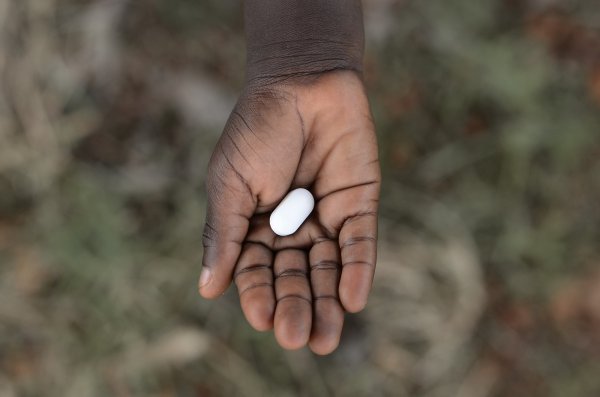New online tool to fill information gaps in substandard and falsified medicines
A major challenge in preventing, detecting and responding to substandard and falsified (SF) medical products is the lack of accessible and reliable information on how widespread the problem is and where. SF medical products, which includes medicines, vaccines, diagnostic tests and devices, pose an immediate danger to many people worldwide, and in the case of anti-infectives, they could also increase the threat of drug resistance emerging and spreading.

To increase the pool of available evidence, IDDO’s Medicine Quality Research Group have built on their work with the WWARN’s Antimalarial Quality Surveyor to further develop the online mapping tool to encompass a wider pool of medical products. The MQ Scientific Literature Surveyor visualises the data on maps and delivers customised summaries of published scientific reports on the quality of antibiotics, separately anti-tuberculosis, antimalarials, antiretrovirals, vaccines, cardiovascular medicines, antidiabetics and medical devices for diabetes management, and medical devices and veterinary medicines across regions and over time, both in English and French.
Data is sourced from original research articles, public alerts and warnings, theses, reports by national and international organisations, drug regulation articles and other communications such as posters, and is designed to support the work of professionals across the global health spectrum, including scientists, researchers and officials, by filling information gaps.
Professor Paul Newton, head of IDDO’s Medicine Quality Research Group, said: “Poor quality medical products jeopardise national, regional and global attempts to improve access to effective health care because they lead to avoidable morbidity and mortality, waste human and financial resources, and contribute to drug resistance.
“The World Health Organization estimates that globally 1 in 10 medical products is SF, but the reality is we do not know the scale of the problem in detail because there is a lack of accessible and reliable information on how widespread they really are. This new mapping tool visualises these data and will help health professionals in the global health field fill critical information gaps.”
Dr Céline Caillet, who coordinates the work of IDDO’s Medicine Quality Research Group, said: “To date little research has been done in the area of Medicine Quality, however, we hope the MQ Surveyor will play a major role by starting to fill the information gap and to inform urgently needed interventions and changes in policy to ensure everyone has access to good quality medical products.” In the context of the COVID-19 pandemic, quality of medicines, vaccines and medical devices should be maintained at their highest standards to ensure equitable access to optimal treatment.
The MQ Scientific Literature Surveyor
- Includes published data describing the quality of antimalarials, antidiabetics and medical devices for diabetes management, antiretrovirals, antibiotics, anti-tuberculosis, veterinary medicines, cardiovascular medicines and medical devices and vaccines.
- Filters studies according to medicine, report type, collection type, medicine source and quality classification.
- Supports national and international organisations working to provide patients with quality-assured, effective medicines.
- The tool is available in French and English
With increasing numbers of reports in scientific literature of SF medical products for COVID-19, IDDO is developing a Surveyor database and map for these, which will include past reports of SF medicines being repurposed for COVID-19.
Substandard medical products result from errors, corruption, negligence, or poor practice in manufacturing, procurement, regulation, transportation, or storage. In contrast, falsified products result from criminal fraud. Although they have been traded for many centuries, in the last few decades the problem has grown due to the increased complexity of the global pharmaceutical economy and internet sales.
This work has been funded through a grant from the Wellcome Trust with support from the MORU Tropical Health Network.
Find out more about the Medicine Quality team’s work here.
